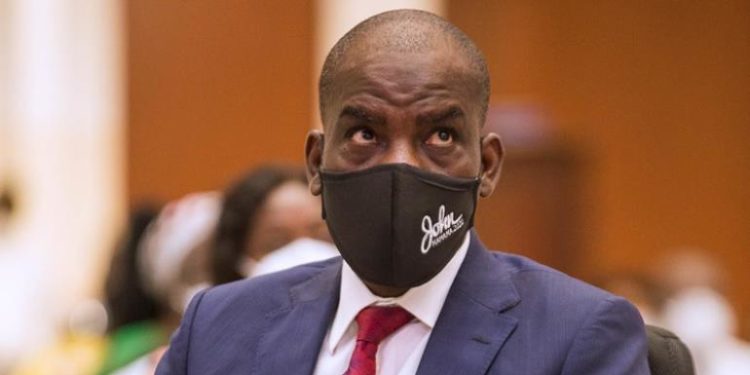Haruna Iddrisu, the Minority Leader in Parliament, and two other NDC MPs have petitioned the Supreme Court for an injunction to prevent the introduction of the Electronic Transfer Levy (e-levy).
Mr. Iddrisu, Mahama Ayariga, and Samuel Okudzeto Ablakwa are requesting that the Supreme Court prevent the Ghana Revenue Authority (GRA) from implementing the e-levy until the outcome of their suit challenging the legitimacy of its approval by Parliament is determined.
Reasons
The injunction action submitted by their lawyer, Godwin Kudzo Tameklo, today (April 19, 2020), claims that if the E-Levy Act is not halted and the court rules that its passage was unconstitutional, millions of individuals will suffer irreparable harm.
According to them, the GRA would be unable to repay the millions of people who paid the e-levy, and the 1992 Constitution, which is the supreme law of the state, would be compromised.
“That the Plaintiffs having raised an allegation of a breach of the Constitution in the passage of the Electronic Transfer Levy Act, 2022(Act 1075), in order to avoid an incalculable damage, injury and inconvenience not only to the people of Ghana but as well as undermining the Constitution which is the supreme law of the land, the justice of the case demands that the implementation of the Electronic Transfer Levy Act, 2022(Act 1075) is put on hold until the final determination of the instant suit,” the injunction application stated.
Substantive case
In their substantive case, the three MPs ask the Supreme Court to declare the e-levy’s passage unlawful and hence null and void.
It is their contention that Parliament lacked the necessary quorum to enact the e-levy, as required by Article 104(1) of the 1992 Constitution, as recently construed by the Supreme Court.
According to them, at the time of the second reading for the passing of the e-Levy, only 136 MPs were present in Parliament, rather than the requisite 138.
They want the court to declare the whole procedure, including the second and third readings and the vote to pass the e-levy, unconstitutional, null and void, and of no effect.
The plaintiffs are also requesting that the court annul Parliament’s passage of the e-levy.
Read Also: Nigerians sharing ‘school sex tape’ face 14 years
SOURCE: GRAPHIC ONLINE



























